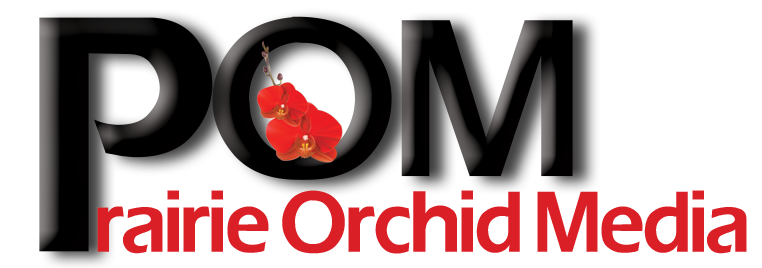Is your website tired of blending in with the rest of the online crowd? Well, we’ve got just the secret weapon to make your website stand out and shine! Say hello to meta tags, the unsung heroes of website design that have the power to transform your website’s performance in ways you never imagined. From boosting search engine visibility to attracting more visitors, meta tags are here to revolutionize your online presence with their magical touch.
At Prairie Orchid Media, we understand that designing a website is only half the battle; making it perform exceptionally what really matters. So let's dive into the world of meta tags – where the magic happens!
What are Meta Tags and Why They Matter
Are you a website design newbie who is baffled by all the tech jargon? Don't worry, we've got you covered! Let's talk about meta tags – those little snippets of code that can have a big impact on your website's visibility. So, what exactly are meta tags? Well, think of them as your website's secret sauce! They are HTML elements that provide information about your web page to search engines and other online platforms. In simpler terms, they tell search engines what your page is all about, helping them understand and categorize your content.
 Now you might be wondering why these tiny bits of code matter so much. The answer lies in the magical world of SEO (Search Engine Optimization). Meta tags are snippets of text that provide information about a webpage's content to search engines and website visitors. These tags are placed in the HTML code of a webpage and are not visible on the actual page itself. Meta tags play a crucial role in improving a website's visibility in search engine results pages (SERPs) and attracting potential visitors.
Now you might be wondering why these tiny bits of code matter so much. The answer lies in the magical world of SEO (Search Engine Optimization). Meta tags are snippets of text that provide information about a webpage's content to search engines and website visitors. These tags are placed in the HTML code of a webpage and are not visible on the actual page itself. Meta tags play a crucial role in improving a website's visibility in search engine results pages (SERPs) and attracting potential visitors.
In addition to optimizing meta tags for search engines, it is essential to consider their relevance and accuracy for human users too. By crafting compelling and concise meta tags that accurately describe your webpage's content, you can improve its visibility, attract more clicks from relevant audiences, and potentially increase conversions on your website. Therefore, paying attention to meta tags is crucial for enhancing your website's overall performance online.
Why Meta Tags are Crucial for Website Success
Meta tags play a crucial role in the success of a website as they provide valuable information to search engines and users. Firstly, meta tags help search engines understand what a webpage is about, allowing them to index and rank it appropriately. By including relevant keywords in the meta tags, website owners can improve their chances of appearing in relevant search results and attracting targeted organic traffic.
Meta tags also have a significant impact on user experience. When users come across a webpage in search results, they often read the meta description to determine if it meets their needs or interests. A well-crafted and compelling meta description can entice users to click on the link and visit the website. Therefore, neglecting or improperly optimizing meta tags can result in missed opportunities for attracting potential visitors.
Moreover, meta tags contribute to better social sharing experiences. When users share webpages on social media platforms like Facebook or Twitter, these platforms typically pull information from the page's metadata such as title and description. By ensuring that relevant and engaging information is included in these meta tags, website owners can increase their chances of capturing user attention when shared on social media networks.
The Different Types of Meta Tags
 There are several types of meta tags that serve different purposes.
There are several types of meta tags that serve different purposes.
- The first type is the title tag, which appears as the clickable headline in search engine results. It should be concise, descriptive, and include relevant keywords to attract users' attention and improve click-through rates.
- The second type of meta tag is the meta description tag. This tag provides a brief summary of the webpage's content and often shows up below the title in search engine results. Although it doesn't directly impact rankings, a well-written description can compel users to click on your link when displayed in search results. Additionally, there are meta tags specifically designed for social media platforms like Facebook or Twitter. These tags allow you to customize how your content appears when shared on these platforms by specifying images, titles, descriptions, and more. Similar to the title tag, it should be compelling, informative, and contain relevant keywords to entice users to click on your website.
- Next is the meta keywords tag, which was once an essential element for SEO but has lost significance over time. This tag allows you to list relevant keywords related to your webpage's content.
Understanding the different types of meta tags and their purposes is crucial for optimizing your website's performance in search engine rankings and attracting organic traffic. By utilizing title tags effectively with relevant keywords and crafting compelling descriptions with strong call-to-actions, you can increase click-through rates and drive more visitors to your site. Additionally, leveraging social media meta tags allows you to control how your content is presented across various platforms, maximizing its visibility and engagement potential online.
Meta tags have a lot of details to wrap your head around! Come back next week for the second installment of this epic series.
Thanks for being part of the Prairie Orchid Media community, and we look forward to helping you reach your website goals this year. We offer a wide range of web development and design services to help businesses increase their web presence.



